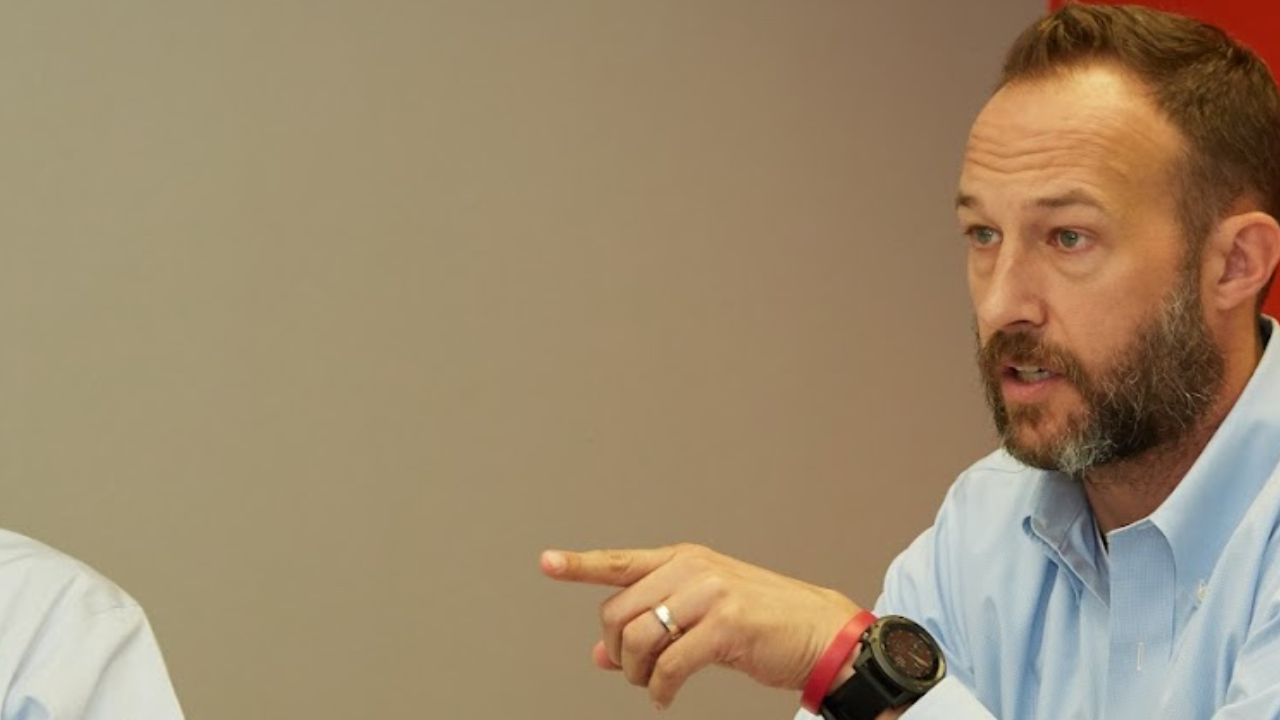I Followed My Instincts to Uncover Internal Fraud
Jul 15, 2024
“Hey Boss, something is off. I just got a call that made the hair on the back of my neck stand up, and I thought I should share it with you.”
These are the words I heard from Carl, a veteran member of our sales team, just minutes before my airplane was taking off. He explained that a potential new sales partner in Georgia wanted to work out a deal like the one we gave to Johnny and Frank, who were supposedly given leads from our internal system to call on as an external sales team.
Wait a minute! What was this all about? We didn’t have any program where our internal team would send leads to external sales partners, and if we did, it certainly wouldn’t come from Johnny. And how did someone we barely knew in Georgia know Frank, a former employee who worked in Texas and had nothing to do with the sales department?
The alert from Carl was appropriate. Something wasn’t right, and I needed to investigate. When my plane landed back home, I was just in time to make it to my night classes at the University of Dallas where I was pursuing my MBA. When the exit came for the campus, I kept driving to the next exit so that I could get to my office and whiteboard what I had found during the flight.
After several dozen social media searches, I discovered that Deborah, a call center leader in Georgia whom we had worked with at a previous company, was the only person I could find who was connected to both Johnny and Frank. Her connection to Johnny made sense, but there was no business reason for her to be connected with Frank. Furthermore, Frank listed a new company name on one of his social accounts, which triggered my instincts and gave me a place to dig in.
I couldn’t find anything about this company on the state registration pages or on social media. Late into the night, I was beginning to wonder if this was just a wild goose chase when I stumbled across a page deep into my Google searching. It was an independent website producer posting about his body of work and sharing how two business leaders, Johnny and Frank, sought him out through a freelance platform to build their new website. The description of what they were building made it clear to me that I had to keep investigating to uncover the truth.
The next morning, I met with the head of HR and the president and asked for a few special resources and complete secrecy about my work. I had feared that others in the company might know what was going on, and I didn’t want to botch the investigation by getting too many others involved. What unfolded next was both exhausting and exciting: an internal fraud investigation with no stones left unturned.
I set up a fake company email address and got a burner phone to contact the company Frank and Johnny were running to gather intel. HR set up a system to automatically dump a few thousand emails into a shared folder each night so that I could review the communication from the past few months searching for clues. I had a private office with a large whiteboard where I mapped what was known and unknown about the case each day.
I could sense that Johnny and Frank had taken our training materials and processes and then created a competing company that used some of our internal sales leads, all while Johnny still worked for us full-time. But here is the deal. Just because I knew this was happening didn’t mean I could pursue any action without proof.
My whiteboard looked a bit crazy – it was full of shorthand notes, dead-end trails, and the acronym XYZ that I found when reviewing internal employee emails that didn’t make sense to me. What did those initials mean?
I would take brain breaks daily and walk the floor to catch up with coworkers. On one occasion, I sat among a dozen team members on a wide-open trade floor when a coworker said he had to call Deborah in Georgia about XYZ. My heart skipped a beat. When I gathered myself, I asked him to come to my office and tell me about XYZ. He told me all about the new call center Deborah had established with the initials XYZ, and I knew I had my link.
Johnny was taking leads from our internal system and using Frank to share those client details with the new call center in Georgia. The three players were clearly engaged in fraud, but our outside legal counsel told me that we would likely need more proof if we were going to take legal action.
With my new knowledge of XYZ, I was able to revisit emails that I had marked days earlier, and more details started to emerge. Besides working with Frank on the outside, Johnny wasn’t acting alone on the inside. Trish, a key member of our operations department, was also involved. Through the email reviews, it was clear that Trish was taking new inbound leads and sharing them only with Johnny so that he could send them off to Frank, who’d eventually give them to Deborah. I could see the entire picture but couldn’t produce the concrete evidence we needed.
The following Monday, I went on a four-hour road trip to visit a few clients. My brain was so locked in on the investigation that I had trouble thinking of anything else. My instincts kicked in once again, and I picked up the phone to call Deborah in Georgia. When she answered, I calmly explained that I knew everything she was doing with Johnny and Frank and that I’d ask our legal department for leniency if she would admit her involvement and cooperate with the investigation. She said she had no idea what I was talking about, to which I said she should consider the offer before it was too late, and then I hung up the phone.
Thump, thump. Thump, thump. The road noise and my heartbeat were both ringing loudly in my ears. Thump, thump.
The phone started ringing. It was Deborah.
When I answered the phone, she was already crying. She started confessing her involvement in the fraud ring and begged for forgiveness, saying she had never expected it to turn into something this bad.
My response was simple. I said, “Deborah, I already know everything and want to see if you are ready to cooperate. I need you to forward every email between you, Johnny, and Frank and also send any materials related to the information they were sharing from our company. If you send me everything and it matches all the details we already know, I will ask our legal counsel to take that into consideration throughout any lawsuits.”
She promised to play ball, and when the phone call ended, the emails started hitting my inbox. There were dozens and dozens of messages between Deborah, Johnny, and Frank with specific client details, internal notes from our company, training documents I had created years earlier, and open discussions about how they would operate this fraudulent sales ring behind our backs.
We got ‘em! We got the smoking gun, and it came when I followed my instincts and bluffed my way through a phone call. While I was equally excited and disappointed, I was mostly just thankful that we could move into the next phase and let the lawyers take over.
In the end, we took the appropriate legal action against Johnny. We were also grateful that we uncovered the fraud reasonably quickly, which meant only a dozen internal client leads were shared with very minimal damage done to our company. Trish was terminated, and Deborah was banned from being a sales vendor for the company. The dust had settled, and Carl's initial call had helped us stop a potential disaster.
I dropped out of the MBA program after missing class during those three weeks. Months later, I was sat by a fraud investigator from one of the big consulting firms on a long evening flight. I recounted the details of my story, and he shared with me the science behind my instincts. He went on to talk about the tools that were built by his company and others to detect an overuse of justification language. He explained that when someone is being investigated, you can use keywords specific to your company in conjunction with words like however, because, moreover, although, etc., to focus on specific periods to investigate further. I wonder how much artificial intelligence has improved the fraud detection tools now available for situations like this.
This story, and others like it, causes me to reflect on leadership and culture. I want to be clear about a few data points. I am not a fan of monitoring employees or their email traffic. Let's treat others as fully formed adults and trust them. I have seen time and time again that if someone is going to cheat on expenses, reports, leads, time off, or anything else, their character will show through somewhere else as well. The person cheating on taxes, on the golf course, or on their spouse often cheats in other places because the justification mindset creates a slippery slope for a continued slide downhill.
I also pray for the folks who were involved in my story. They lost their way and made bad decisions, but I wish them no ill will. Their names and any company names have been changed out of respect for their ongoing dignity.



